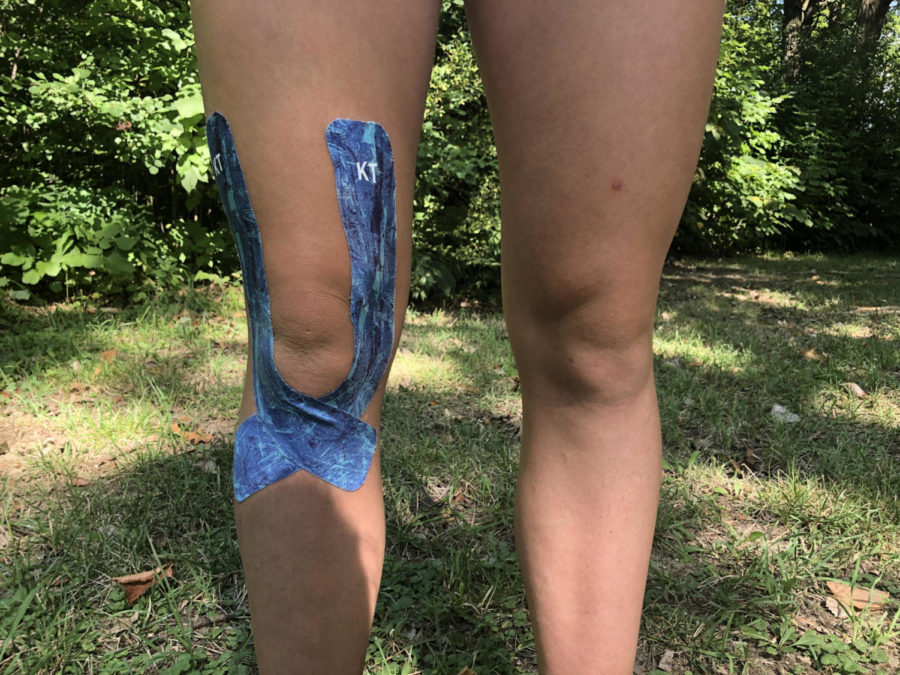Athletes’ injuries are becoming more than physical
A common solution athletes utilize to heal from an injury is KT Tape.
A competitive athlete’s career can change in a matter of seconds: anything from pivoting the wrong way on a turf field to landing awkwardly after a rebound can cause an agonizing injury and although the physical effects of these ailments are apparent, the mental consequences often remain unseen.
Senior varsity football player Nicholas Mears tore his MCL this summer and experienced another undiagnosed setback from the first play in the first game of this season. An opponent tackled him from the outside, causing Mears’s leg to shift back and inward.
“It has been frustrating to just watch the games on the sideline when I know I could be out there on the field. I have some moments of deep sadness when I think about what I am missing and what I could be enjoying,” Mears said.
One of the very unfortunate things about injuries is that they can happen to athletes in any sport. During the winter of her junior year, senior varsity basketball player Erin Ganshow got a concussion in one of her basketball games that lasted about four months.
“It was hard for me to accept that even once I was physically better, this injury would follow me,” Ganshow said.
Two very different injuries can affect athletes in ways that are unexpectedly similar. Once the initial shock of their injuries set in, both Mears and Ganshow were forced to take a step back from competing to heal mentally and physically.
After going through surgery last year to correct her compartment syndrome, a physically-induced condition that constricts her muscles, senior soccer player Allison Eberhard started giving back to her community as a way to heal mentally.
“I volunteer at the Humane Society, so that was a big way of just like getting my mind off of [my injury] and doing something I enjoy that doesn’t involve my legs affecting it,” Eberhard said.
Senior varsity soccer player Peter Pierropoulos sprained his ankle while lunging in for a tackle this season. Although dealing with this injury has been a disappointment to Pierropoulos, it has not had as large of an impact on his mental health due to past experiences.
“I’ve gone through injuries before, so I kind of know how to handle them. It takes a big mental toll, but I’ve learned how to fight through it,” Pierropoulos said.
An important way that coaches and teammates assist injured athletes throughout their recovery process is by keeping them involved with the sport they love. Having emotional support from outside sources is a major way these athletes maintain positive mindsets. Girls cross country head coach Doug Plunkett described how the girls cross country team ensures that every member still has an impact on the group.
“We try to make it as normal as possible. Everybody’s still together at the beginning and end of practice; the only time they really separate is when we’re going to do a workout or a run and they have to do cross training or another activity,” Plunkett said.
Injuries are not things for which people wish. As challenging as it is to cope with them in the moment, the recovery process builds character and teaches athletes valuable life lessons. Perhaps more mental support could be provided to these athletes as they go through these testing times.



